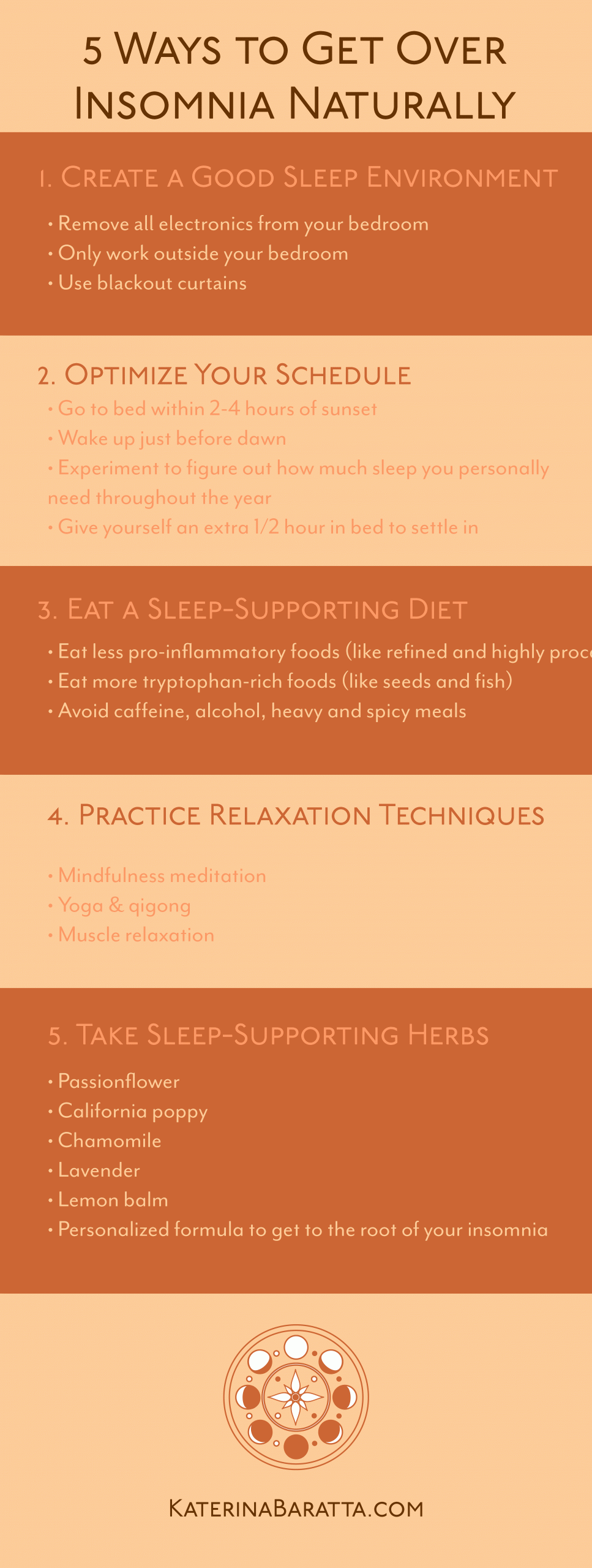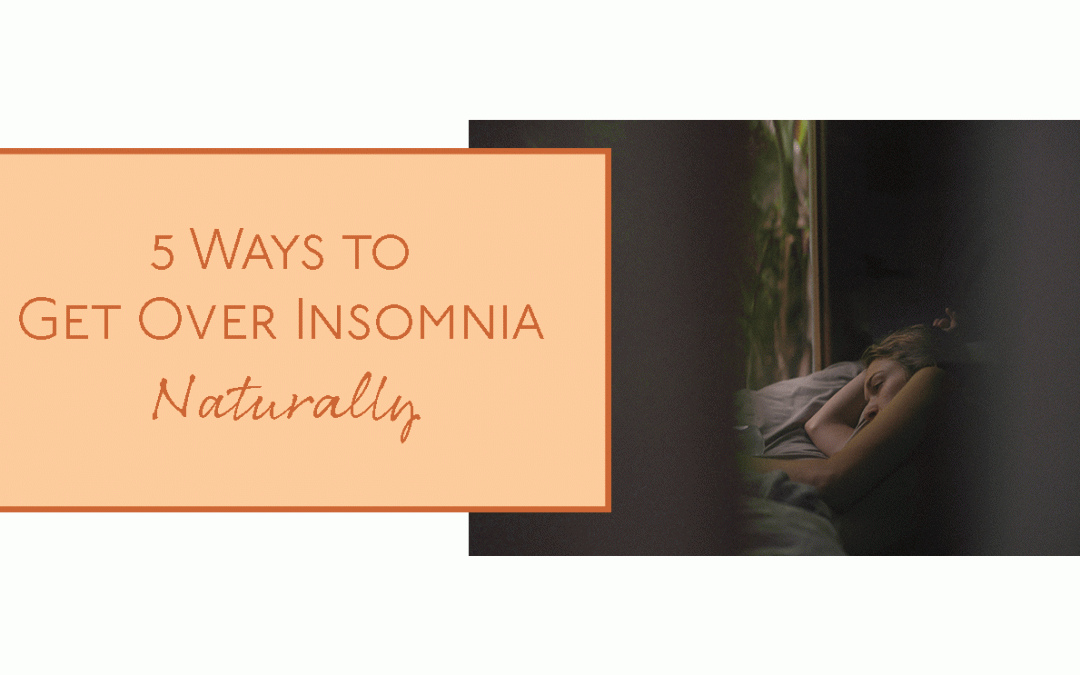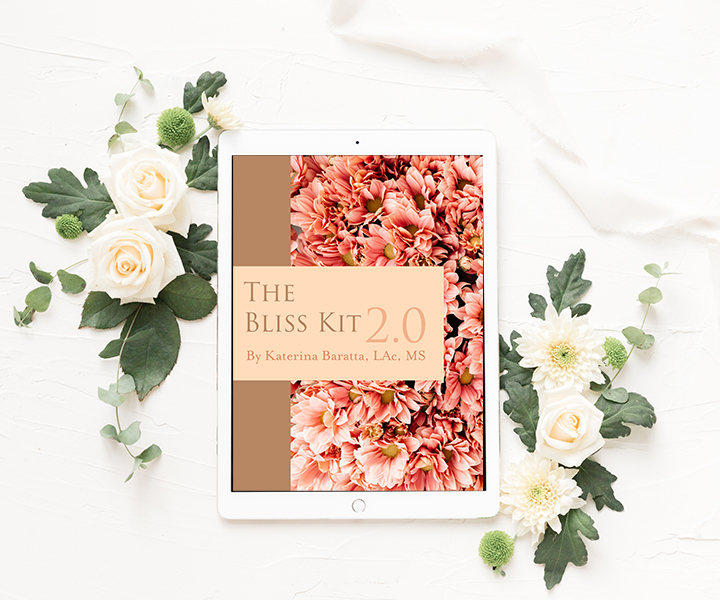Insomnia is a real P.I.T.A., as my father likes to say (Pain In The…eh-hem…Donkey).
Maybe you can’t fall asleep as quickly as you’d like.
Or you sleep restlessly, waking up a gajillion and two times without ever enjoying a sweet deep slumber.
You might also have trouble falling back to sleep once you’ve woken up.
Insomnia is frustrating at best and can be totally debilitating when it goes on for too long.
With insomnia, you feel exhausted all the time.
Your brain feels as foggy as San Francisco in the winter.
It’s like you’re walking through sludge just to get through your everyday tasks.
And talk about irritable!
Ooooeee, you do NOT want to be messed with when you’re dealing with insomnia.
Either that, or anxiety takes over, making life feel ten times heavier than it needs to be.
To make matters worse, insomnia is associated with some really dangerous health outcomes down the line. (1)
So what can you do to get the sleep you so desperately need?
Here are 5 ways to get over insomnia naturally:
1. It Starts with Creating a Good Sleep Environment
If you want to get the optimal sleep you need, your bedroom has to be designed to promote sleep.
Take all electronics out of your bedroom, including your phone (yes, even if you put it in airplane mode), computer and TV.
Screens tend to be addictive, and studies have shown that it isn’t so much the blue-light from screens that keeps us up, but the fact that we get so engrossed in what we’re watching that we push past our bed-time, and end up paying for it in the morning. (2)
What you’re consuming on those screens causes a restlessness that has a stimulating effect on your nervous system, which is NOT what you want in your sleep environment. (3)
So if you use your phone as an alarm, get yourself an analogue clock and remove the temptation from your bedroom entirely.
You want to condition yourself to feel sleepy when you walk into your bedroom, not stimulated.
You’ll sleep better if you make it a policy to never take work or anything else that’s overstimulating into your bedroom. If you want to be cozy when you work or watch TV, add some extra pillows and soft blankets to your sofa and move those activities out of the bedroom.
And make sure your bedroom is dark and comfortably cool.
Blackout curtains are a must-have in populated area and in the brighter months.
2. Optimize Your Schedule
Your hormones thrive on a regular schedule, and this couldn’t be more true than for your sleep hormones.
The more predictable you can make your sleep schedule, the better your sleep quality will be in the long run.
The average amount of sleep that’s typically recommended is 8 hours.
But according to Chinese medicine, you need less sleep in the spring and summer and more sleep in the autumn and winter.
And the amount of sleep you need changes over your lifespan, too. (4)
A good rule of thumb is to go to bed within 2-4 hours of sunset and wake up just before dawn.
Experiment and listen to your body to figure out how much sleep you personally need throughout the year.
And give yourself an extra half an hour in bed so you have time to wind down and settle into your slumber.

3. Eat a Sleep-Supporting Diet
Natural medicine traditions like Ayurveda and Chinese medicine often associate insomnia with excess heat in the system.
Heat symptoms almost always go hand in hand with signs of systemic inflammation from a biomedical perspective.
And scientific studies are confirming the link between inflammation and persistent insomnia. (5, 6)
A diet like the Mediterranean diet, which is low in pro-inflammatory foods like refined and highly-processed ingredients, and high in tryptophan-rich ingredients like seeds and fish, has been positively associated with better sleep outcomes. (7)
It’s also a good idea to avoid caffeine, alcohol, heavy and spicy meals, especially in the hours leading up to bed. (8)
4. Practice Relaxation Techniques
A lot of insomnia is related to stress and anxiety.
Which makes sense.
If you can’t shut up the voices in your head they’re bound to keep you awake with their stories.
So practices like mindfulness meditation, yoga and qigong, and muscle relaxation are essential tools to have on hand when you can’t sleep. (9, 10)
But remember, the effects of these practices is cumulative.
So keep up with your chosen practices even when you’re sleeping well and they’ll have a much more powerful effect when you need them.
5. Take Sleep-Supporting Herbs
Herbal medicine is one of my favorite sleep aides.
Just a few drops of a gentle herb tincture like passionflower, California poppy, chamomile, lavender, or lemon balm can send you through the express lane to dreamland. (11, 12, 13, 14)
These safe and powerful herbs are always part of my first line or defense in treating insomnia in the women I work with.
But with more persistent insomnia there’s usually a deeper imbalance going on.
In cases of persistent or extreme insomnia, I recommend setting up an appointment with me or another trained holistic medicine practitioner that you trust so you can heal the root cause of your insomnia.
Now I’d love to hear from you.
What strategies have you tried to get over insomnia? What worked? What didn’t?
Leave a comment and share your experience!
References:
- https://academic.oup.com/sleep/article/33/9/1159/2454552
- https://podcasts.apple.com/us/podcast/70-sleep-screens-with-dr-michael-gradisar/id1578319619?i=1000650336444
- https://www.ncbi.nlm.nih.gov/pmc/articles/PMC6732697/
- https://www.ncbi.nlm.nih.gov/pmc/articles/PMC6267703/
- https://www.sciencedirect.com/science/article/abs/pii/S0002934314009140
- https://www.sciencedirect.com/science/article/abs/pii/S0006322315004370
- https://www.ncbi.nlm.nih.gov/pmc/articles/PMC6231522/
- https://www.ncbi.nlm.nih.gov/books/NBK279320/
- https://www.sciencedirect.com/science/article/abs/pii/S0022399916303579
- https://www.hindawi.com/journals/ecam/2019/9359807/
- https://www.ncbi.nlm.nih.gov/pmc/articles/PMC5699852/
- https://www.ncbi.nlm.nih.gov/pmc/articles/PMC2995283/
- https://www.ncbi.nlm.nih.gov/pmc/articles/PMC3612440/
- https://www.ncbi.nlm.nih.gov/pmc/articles/PMC3230760/






